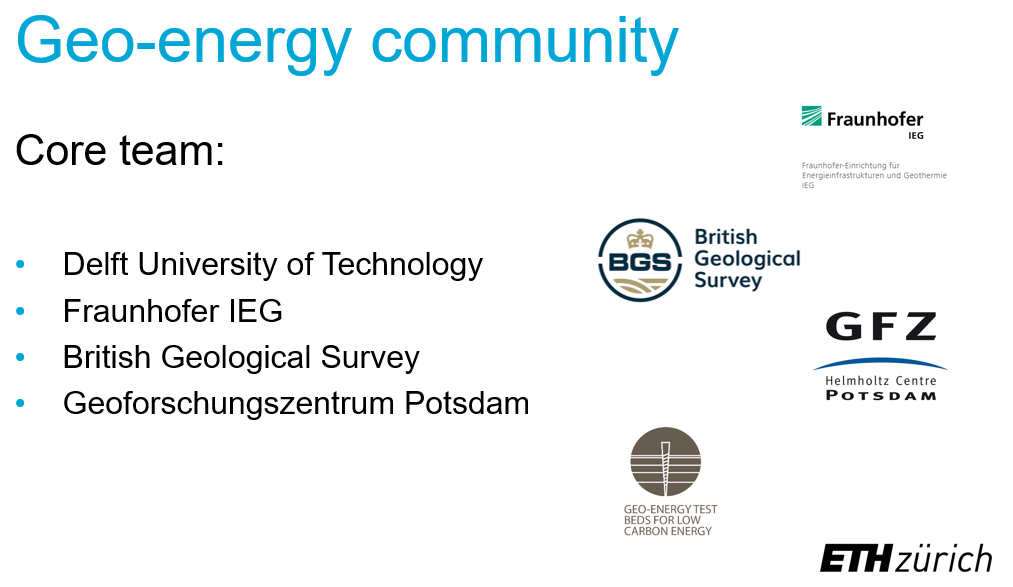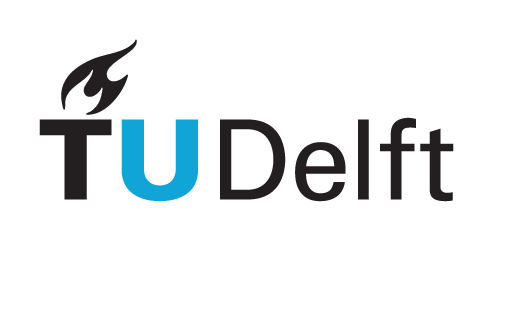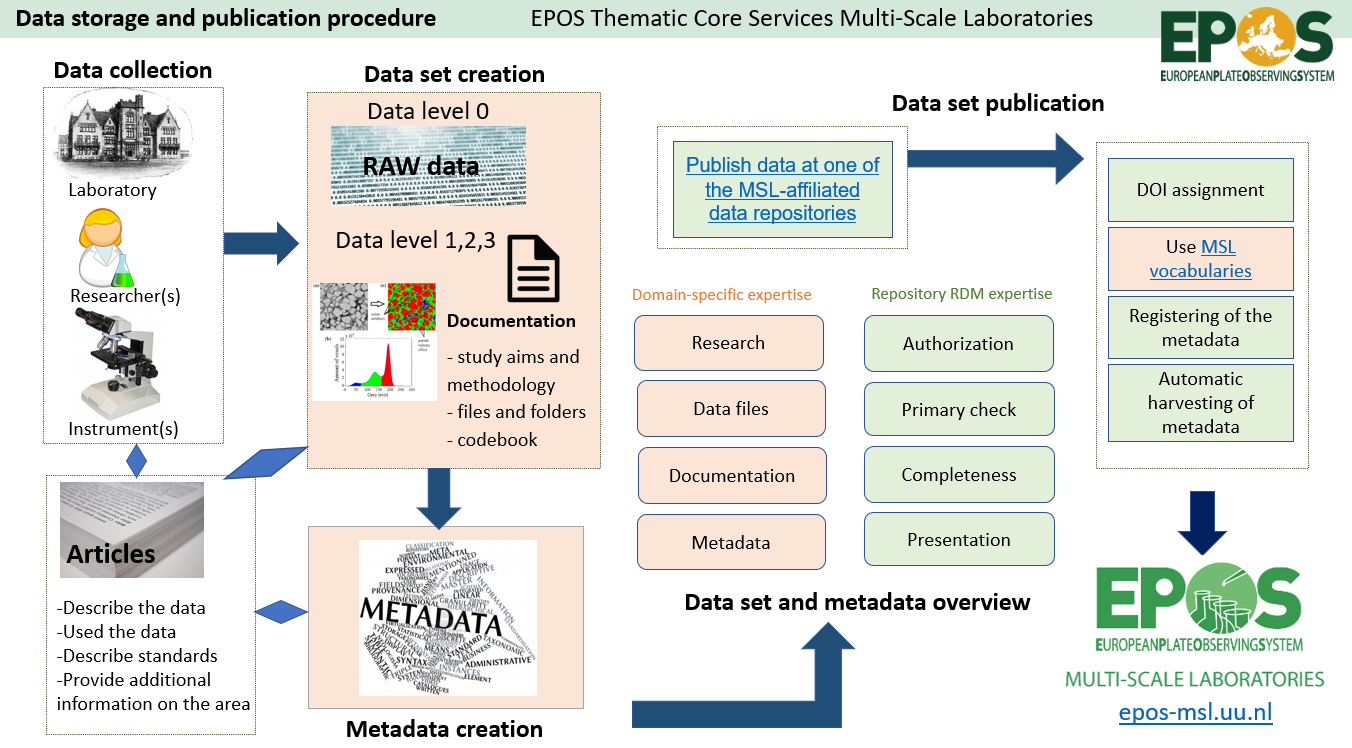Data provision to EPOS-NL#
ℹ Download images, presentations, files, and documents from DAPwellscienceteam/DataManagement/EPOS-NL.
Research data from the geothermal well and monitoring stations will be compliant with EPOS data policy and NWO Open Data Policy, i.e. producing data that is findable, accessible, interoperable, reusable (FAIR), licenced and openly shared by depositing them in a trusted repository and preserve them for at least ten years.
EPOS-NL is the Dutch contribution to the European Plate Observing System (EPOS), a network of research infrastructures for solid Earth sciences, that facilitates the integrated use of data, data products, and multi-scale laboratories.
TU Delft contributes to EPOS-NL with the following research facilities:
Delft Petrophysics Lab DPL, part of the Gesocience and Engineering Laboratory.
Multi-scale Imaging and Tomography MINT, a distributed facility hosted partly at TU Delft and partly at Utrecht University.
Campus geothermal well, installed at TU Delft campus.
EPOS-eNLarge, a new research infrastructure project including a deep monitong well to be installed in Delft.
ℹ EPOS-NL makes geoscientific data (from Dutch institutions) internationally and centrally discoverable through the EPOS data portal and MSL Data Catalogue[]. Download these guidelines to know how.
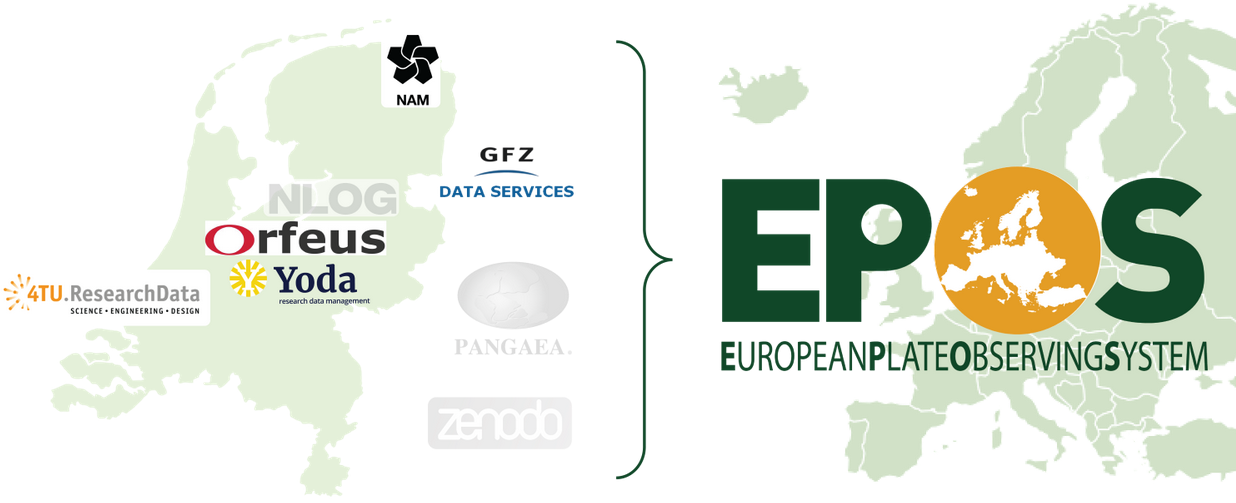
EPOS Multi-Scale Laboratories#
EPOS-NL works with the European community Multi-Scale Laboratories (MSL) to provide central access to geoscientific laboratory data. However, EPOS-NL infrastructures contribute with data publication to other communitites, such as seismology and geo-energy, as illustrated below. MSL is managed by Utrecht University and is one of EPOS thematic core services (TCS).
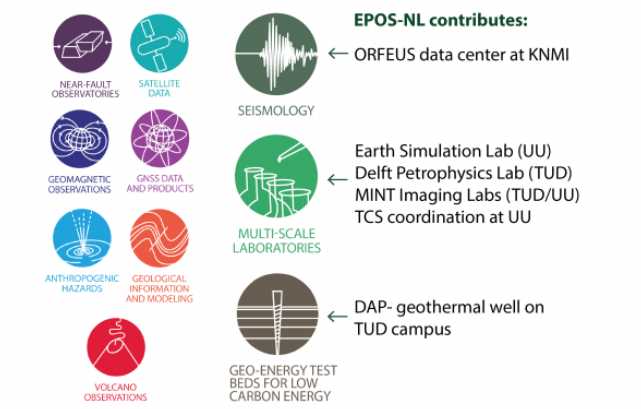
The MSL Data Catalogue collects and harmonizes available and emerging laboratory (meta)data on rock and melt physics, paleomagnetism, geochemistry, microscopy, tomography, analogue modelling of geological processes, and geo-energy. The aim is to generate data products that are easily findable, accessible, interoperable, and reusable for future research (FAIR data).
ℹ The geothermal well project contributes actively to the development of discipline-specific vocabularies to improve discoverability and reusability of our data publications. TU Delft is a member of the MSL Consortium Board, represented by Phil Vardon and Susanne Laumann.
MSL Geo-energy Test Beds#
The latest addition to Multi-Scale Labs is the Geo-energy Test Beds community - the largest-scale infrastructure. The goal of the community is to exchange knowledge, share resources, promote synergy and collaboration, facilite access to other/different facilities.
Data generated by these infrastructures include:
Data obtained in testing or monitoring field-scale subsurface applications aimed at curbing CO2 emissions, e.g. subsurface storage of fluids (H, N, CO2, hot water), geothermal energy production, among other;
Fibre optics sensing data (DAS, DSS, DTS), seismological data, electromagnetic data, etc.
The following are research infrastructures of the Geo-energy Test Beds community providing open access to published data:
Geothermal well on TU Delft campus,
UKGEOS - 3 UK observatories on heat / geothermal / geosciences,
ECCSEL ERIC - CO2 storage facilities,
Gross Schoenebeck (in-situ geothermal lab, in operation),
Ketzin (CO2 storage pilot site, abandoned),
Mine Thermal Energy System (MTES), Germany,
Fraunhofer large-scale lab: TRUDI underground laboratory and Rhineland,
ETHZ Bedretto Underground Laboratory for Geosciences and Geoenergies,
Rijswijk Centre for Sustainable Geo-energy, among other.
ℹ Download the first version geo-energy vocabulary, which has been released in August 2024. There are plans to implement the MSL vocabularies in 4TU.ResearchData repository in such a way that keywords can be directly assigned during the preparation of a data set publication.
